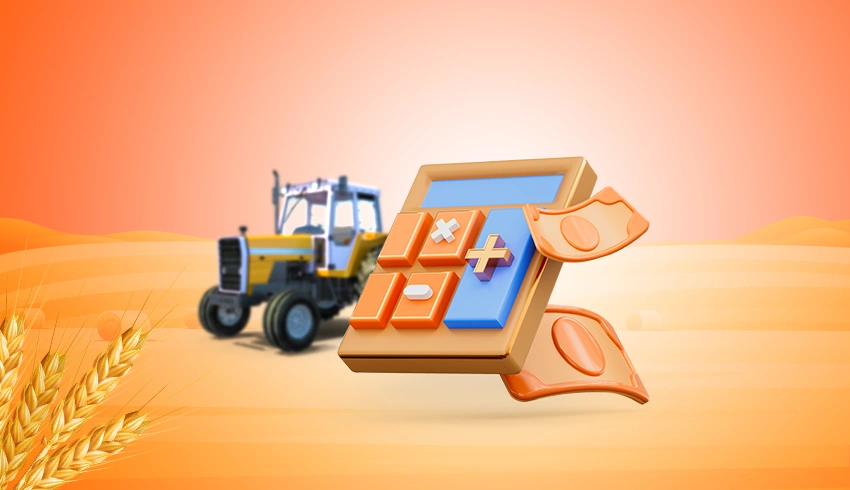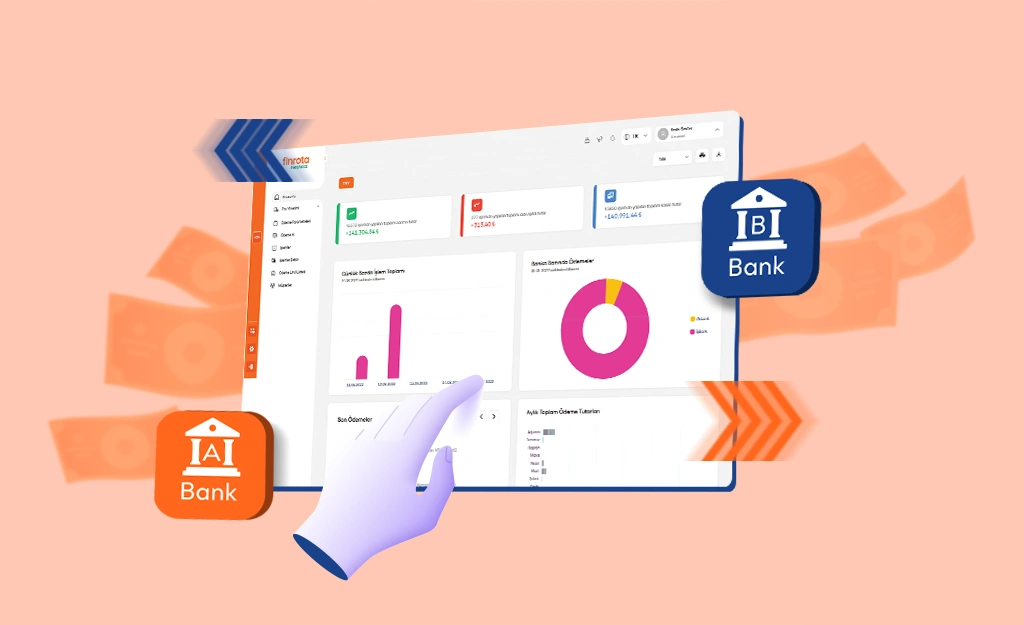The agricultural sector, a main pillar of Turkey's economy, secures the nation's food supply through the labor of millions of farmers and makes substantial contributions to employment. For farmers, agricultural entrepreneurs, their accountants, and future professionals in this strategic field, correctly understanding and managing the taxation of agricultural income is a paramount issue. The intricate nature of tax laws, along with constantly changing rates and thresholds, can easily lead to confusion among many producers.
Tax legislation, constantly changing rates, technical jargon... We understand that all of this can seem a bit confusing at first. Questions like, "Will I have to file a tax return now?", "Will there be a tax withholding when I sell my products?", and "Are the government subsidies I receive considered part of my income?" may be running through your mind.Our goal is to address all your questions about agricultural income and taxation using the most up-to-date information. Based on official sources and relevant laws, we have created a comprehensive A-to-Z roadmap for you.
What is Agricultural Activity?
In its most basic definition, agricultural activity is the process of cultivating land to grow crops (such as grains, fruits, and vegetables) and raising animals (like cattle, sheep, and poultry) to obtain food, fiber, or other products. This economic activity, which includes sub-fields like farming, animal husbandry, forestry, and even fishing, encompasses all production, processing, and harvesting activities undertaken to meet basic human nutritional needs and supply raw materials for industry.The first step in understanding the taxation mechanism is to correctly interpret the definitions of "agricultural activity" and "agricultural product" in the Income Tax Law (GVK).According to the law, agricultural activity refers to the production, harvesting, preservation, and sale of plants, forests, animals, fish, and their products through methods such as sowing, planting, tending, raising, and cultivating on land, and in seas, lakes, and rivers. This broad definition encompasses both traditional field farming and modern production models not directly tied to land, such as greenhouse cultivation, aquaculture, and beekeeping.
Activities Classified as Agricultural
According to Article 52 of the GVK, agricultural activity is not limited to simply sowing and reaping. The scope defined by the law is much broader and includes the following:
Field Crop Farming: The production of grains like wheat, barley, and corn, as well as legumes like chickpeas and lentils.
Animal Husbandry: The raising of livestock (large and small), poultry farming, and breeding.
Aquaculture: The operation of fish farms in seas or inland waters, net cage farming, and fish production in pools.
Horticulture and Other Specialized Agriculture: Fruit growing (pomology), grape cultivation (viticulture), vegetable farming, greenhouse cultivation, and floriculture.
Nursery Operations: The cultivation of seeds, seedlings, saplings, and ornamental plants.
Non-Land-Based Activities: Activities such as beekeeping (apiculture), silkworm farming (sericulture), and mushroom cultivation in controlled facilities are considered agricultural even if not performed directly on land.
Product Processing: The processing by farmers of their own produce, when it is a natural extension of production (e.g., making olive oil from their own olives or molasses from their own grapes), falls within the scope of agricultural activity.
Leasing of Agricultural Equipment: The leasing of farmer-owned agricultural tools and machinery, such as tractors and combine harvesters, for use in the agricultural production of other farmers is also considered an agricultural activity.
The law's provision that "the nature of agricultural activity does not change if production is not carried out directly on land" demonstrates its adaptation to sectoral developments, ensuring that innovative agrotechnology ventures like soilless and vertical farming are also subject to this tax regime.
What is an Agricultural Product?
An agricultural product, or "mahsul" as it is termed in the law, is any raw or processed material obtained as a result of the agricultural activities defined above. These products are the tangible output of agricultural activity and form the basis of the income to be taxed.Examples of agricultural products include:
Wheat, barley, cotton, tobacco, tea, hazelnuts
Tomatoes, peppers, potatoes, onions
Apples, grapes, olives, citrus fruits
Live animals, milk, eggs, honey, wool
Freshwater and saltwater fish, other aquatic products
Forest products (wood, resin, etc.)
Seedlings, saplings, seeds
The Distinction Between Agricultural and Commercial Income
Whether an activity is classified as agricultural or commercial fundamentally changes the applicable tax regime. Therefore, clearly understanding the boundaries between these two types of income is of vital importance.This distinction directly impacts bookkeeping obligations, the type of tax return to be filed, applicable tax rates, and, most importantly, Value Added Tax (VAT) liability.
Determination and Taxation Methods for Agricultural Income
Agricultural income is taxed using two primary methods, which are determined by the size of the business operation.
1. Taxation via Withholding - (GVK Article 94)
This method applies to the vast majority of farmers in Turkey and is based on the principle of tax deduction at the source.How it Works: When a farmer sells their product to a tax-liable buyer (such as a merchant, company, or cooperative), the buyer deducts tax at the legally specified rates from the payment made to the farmer. The buyer then declares and pays this amount to the tax office on the farmer's behalf. In this scenario, the farmer has no additional obligation to file a tax return or maintain accounting records; the withholding acts as a final tax.2025 Agricultural Withholding Tax Rates:
Animals and their products: 2% (This is reduced to 1% if registered on a commodity exchange)
Other agricultural products: 4% (This is reduced to 2% if registered on a commodity exchange)
Services within the scope of agricultural activities: 4%
Forestry services: 2%
2. Taxation on an Actual Income Basis - (GVK Article 54)
Farmers who exceed predetermined business size thresholds are required to opt out of the withholding system and declare their income on an actual basis. This method, similar to that for commercial enterprises, requires the formal accounting of all income and expenses. It is sometimes referred to as taxation for large-scale farmers.Conditions for Transitioning to the Actual Income Method: Meeting any one of the following conditions makes transitioning to this method mandatory:
Exceeding the thresholds for land area, number of trees, or number of animals as specified by product group in GVK Article 54.
Owning a combine harvester or a motor vehicle of a similar nature.
Owning more than two tractors that are up to ten years old.
Voluntarily opting for taxation on an actual basis.
How the Actual Income Method Works: Farmers subject to this method maintain records in an Agricultural Operations Ledger (Zirai İşletme Defteri) or, if they choose, on a balance sheet basis. At the end of the year, all deductible expenses as listed in GVK Article 57 (such as seeds, fertilizer, feed, fuel, depreciation, personnel wages, loan interest, etc.) are subtracted from the total revenue. The resulting net profit (or loss) is then declared in March of the following year via the Annual Income Tax Return.



